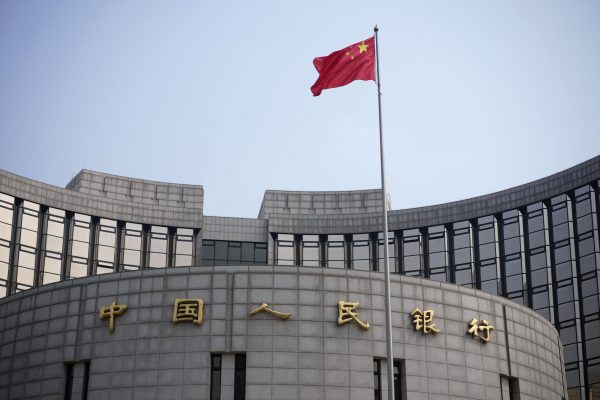The size of Laos’ debt obligations make it seem like a default is inevitable. The country’s total public and publicly guaranteed debt stock was 88 per cent of GDP in 2021. With an average of US$1.3 billion worth of yearly debt servicing owed between 2022 and 2026, the Lao government needs to seek debt service deferral and continue to refinance its existing debt stock. Laos also faces a liquidity challenge — it does not have enough assets to meet its external debt obligations — with its foreign exchange reserves (US$1.3 billion) equal to the annual amount needed to service its debt.
Geo-economic factors mean that the concerns about Laos defaulting are unrealistic. The media often characterise Laos as a victim of debt-trap diplomacy in which Beijing extends debt to a borrowing nation to increase its political leverage or seize assets in the event of a default, but this is a myth. China is unwilling to stomach the financial and political ramifications of a potential Laotian default.
Researchers Deborah Brautigam and Meg Rithmire argue that Chinese banks have been willing to restructure foreign debt and that Chinese entities have never seized any assets from a foreign country. Still, Chinese lending is lacking in transparency. This fuels incorrect claims that there is a ‘China Inc’ through which dodgy loans are centrally administered, when in fact inter-government debt and company loans are administered separately.
Western commentators tend to be critical of Laos’s one-party socialist state led by the Lao People’s Revolutionary Party (LPRP) and express their concerns about human rights and governance. But socialist regime ties have helped Laos secure Beijing’s political and financial support. Laos, Vietnam and China are socialist comrades despite occasional love-hate interplays in history.
Laos’ ability to secure reduced debt service repayments to China in 2020 and 2021 suggests that Beijing is willing to grant deferrals on a bilateral basis — its preferred approach to debt governance with debtor countries. The currency swap arrangement between the Bank of the Lao P.D.R. and the People’s Bank of China has helped save scarce foreign exchange reserves. The official foreign exchange reserves had been around US$800–$1000 million since December 2014 but jumped to US$1.3 billion in July 2020.
China and Laos are pragmatic enough to understand the economic and geopolitical implications of any default. A ‘debt trap’ for Laos would also imply a ‘debt trap’ for Chinese lenders. China does not want to become a creditor burdened with non-performing assets, nor does it want to look like an unreliable lender to developing Asia Pacific and indeed African nations. Beijing has learnt its lesson and knows how to deal with default risks in infrastructure development.
For Beijing, China–Laos ties symbolise its focus on the Asia Pacific region as opposed to the Free and Open Indo-Pacific, Washington’s foreign policy framework. China has been enhancing its cooperation with ASEAN members, giving China another reason to not let Laos default.
Laos’ leadership admits that the country is on the verge of an economic crisis. Anxiety about the situation was evident during the National Assembly’s third Ordinary Session from 13 June–8 July 2022. The recent appointment of Bounleua Sinxayvoravong to the Central Bank Governorship and Malaythong Kommasith to the Ministry of Industry and Commerce suggests a sense of urgency.
G20 nations agreed to the Debt Service Suspension Initiative (DSSI) in April 2020, a time-bound suspension of debt service payments for the most vulnerable countries during COVID-19. Even still, Laos had to deal with bond redemptions totalling US$362 million that were owed by the government and Electricite du Laos-Generation, a state-owned power generation company. In early 2021, the World Bank estimated that the DSSI would cut Laos’ debt-service payments by US$315 million — an amount bringing merely temporary relief to its repayment crisis.
Despite the G20’s altruistic motives, the DSSI lacks effectiveness. Private sector participation is limited to voluntary forbearance and bondholders are out of the scope. China’s participation in the DSSI is a significant breakthrough, but the definition of bilateral official creditors leaves a condition excluding claims made by the China Development Bank and the Export–Import Bank of China. This explains why the Lao government did not choose the DSSI option.
The Lao government could avoid default by seeking China’s support for deferrals and liquidity provision. On top of bilateral debt deferrals, China is inclined to accept equity investment, as seen in the power grid shareholding deal. This would help Laos secure foreign exchange for debt repayments and foreign capital for infrastructure development.
Other than the ‘non-risk’ of default given China’s interest in keeping the country afloat, Laos still needs to deal with US$964 million of debt owed to commercial creditors. Its outstanding bonds in the Thai market exceeded the equivalent of US$1 billion in 2021. In March 2022, the Lao government successfully issued baht-denominated bonds worth 5 billion baht (US$140 million) for the first time since November 2018. Redemptions worth US$101 million and US$204 million are due in 2023 and 2025.
Strong China–Laos relations mean that the debt trap narrative is not accurate. China’s experience as a major international creditor, and a sense of urgency within Laos itself, will be what determines whether or not Laos successfully navigates its severe economic and financial situation.
Toshiro Nishizawa is Professor at the Graduate School of Public Policy, the University of Tokyo.

